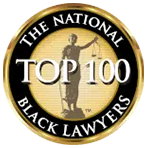The majority of states have laws in place to hold establishments accountable when they oversell alcohol to a patron. If an innocent person is injured by an intoxicated individual who was overserved at a restaurant, bar, or other business, dram shop liability could come into play. Understanding who’s liable for intoxicated customers is an important part of building a claim that helps a victim get the compensation they need to recover.
Selling and Buying Alcohol in South Carolina
The South Carolina Department of Revenue regulates liquor licenses for the state. The state offers a number of licenses, some of which include brewery, instate winery, non-profit liquor by the drink, and retail liquor store. The type of business and what the owner’s plans are determines what type of license they apply for. In general, there are three categories: retail, wholesale, and manufacturing. Dram shop claims typically involve retail licenses.
In general, the application process takes six to eight weeks. Within 30 days off applying, the applicant is required to run an ad in their local paper announcing their intention to pursue a liquor license. The cost is anywhere between $5 to $2,200 every two years, depending on the license type. A filing fee also exists, from $200 to $300.
The actual selling of alcohol is limited depending on the type of business. For example, restaurants and hotel lounges are allowed to sell alcohol Monday through Saturday from 10 a.m. until 2 a.m. Liquor stores may operate Monday through Saturday from 9 a.m. until 7 p.m. Private clubs are allowed to sell alcohol Monday through Saturday from 10 a.m. until 2 a.m.
Alcohol sales on Sunday depend on the location. The state gives counties and towns the power to determine whether or not to permit the sale of alcohol. In general, food establishments with local option permits can sell beer, wine, and spirits Sunday mornings. Grocery and convenience stores with permits have the ability to sell beer and wine 24 hours a day, seven days a week.
While sellers are allowed to lower regular drink prices between 4 p.m. and 8 p.m., for what is typically referred to a “happy hour,” it’s illegal to have a two-or-more-for-the-price-of-one drink offer. It’s also illegal to give away free wine, beer, or mixed drinks. If any business is found in violation of the laws and regulations above, they can be fined. Dram shops liability may apply is an intoxicated individual injures someone after being illegally served.
In regard to buying alcohol, no one under the age of 21 is allowed to buy or attempt to buy alcohol, unless they are helping police entrap clerks. It’s also a criminal offense to use a false ID in an attempt to buy alcohol.
Determining Liability for Intoxicated Customers
Proving fault under dram shop is challenging in South Carolina for a number of reasons. For one, there are no specific dram shop laws. There are, however, laws prohibiting the sale of alcohol to an obviously intoxicated person and to anyone under the age of 21.
If you were involved in a drunk driving accident, your lawyer can look into the establishment that sold the intoxicated driver the alcohol. If the negligent party was clearly intoxicated and the bartender kept serving them, dram shop liability could apply. Intoxication affects a person’s appearance, speech, attitude, and behavior. Their eyes may be glassy or drooped, they may sound loud or be unable to respond in a normal manner. Additionally, they could be aggressive or argumentative or be unable to walk without swaying or stumbling.
Common dram shop claims may be filed against owners of or establishments like:
- Restaurants
- Bars
- Hotels
- Liquor Stores
- Nightclubs
- Country Clubs
Proving an owner or employee was negligent when serving alcohol is challenging. We may utilize security cameras to analyze how the bartender or server was responding to the customer that caused your accident. We’ll also get access to receipts to see how many drinks the person consumed while at the establishment. While every person metabolizes alcohol differently, a high number of drinks on any tab could indicate negligence.
Filing a dram shop claim can take time and the investigation is often difficult, especially depending on the cooperation of the establishment in question. If you’re seeking justice for your injuries, you need a reliable, experienced law firm by your side. At Solomon Law Group, we’re prepared to fight for our clients. To learn more about filing a claim and the merits of your unique situation, contact us today.











